CIVICUS MONITOR
Civic freedoms under attack globally, annual report finds
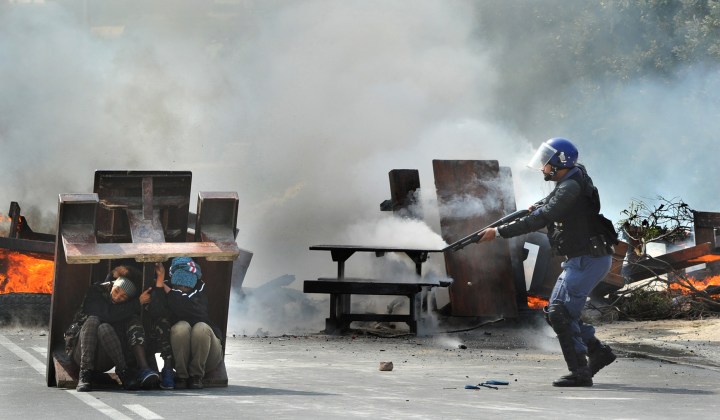
The latest Civicus Monitor report, People Power Under Attack, noted a concerning downward shift in civic freedoms in a growing number of countries worldwide.
Civil society is under attack, and it is a growing global problem. This was one of the key findings of Civicus Monitor’s 6th annual People Power Under Attack report.
The report, which rates civic space conditions in 198 countries and territories worldwide, found that civil society was under severe attacks in 118 countries monitored.
The decline of civic freedoms does not discriminate, with several countries plagued by authoritarian regimes and even mature democracies experiencing ratings downgrades. These nations include Senegal, Bangladesh, Sri Lanka, Venezuela, Bosnia & Herzegovina, Kyrgyzstan and Germany.
The 198 countries in the report are ranked as open, narrowed, obstructed, repressed or closed. This year’s report alarmingly noted that almost a third of the world’s population lives in countries with closed civic spaces, the highest percentage since the organisation first began tracking civic space conditions in 2018.
Given that 40 countries, including South Africa, are hosting crucial elections in 2024, and that civil society plays a pivotal role in defending democracy, the report’s findings are worrying.
Restrictions
In a video address during the launch of the report, Clément Voule, the United Nations’ special rapporteur on the rights to freedom of peaceful assembly and association, expressed concern about the restrictions facing civil society, especially in light of the upcoming 75th anniversary of the Universal Declaration of Human Rights on 10 December.
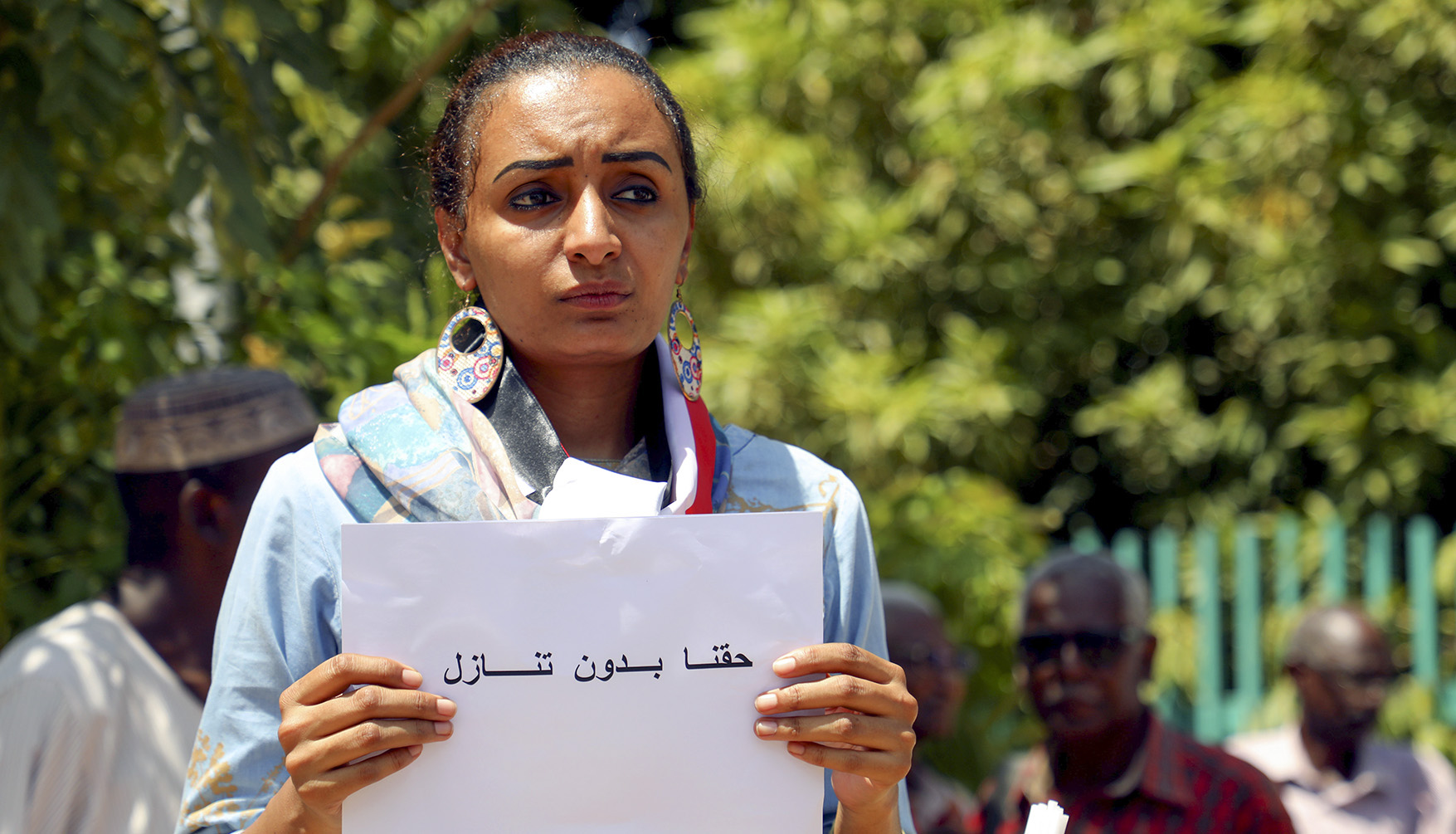
A protester holds a placard written in Arabic reading ‘our right without concession’ during a protest in front of the Council of Ministers headquarters, in Khartoum, Sudan, on 12 October 2020. Protesters claim they were arbitrarily expelled from the regime of ousted Sudanese President Omar al-Bashir and were calling to return to work. (Photo: EPA-EFE / Mohamed Abu Obaid)
“The right to defend human rights and the space to defend human rights are needed most so human rights defenders, activists and civil society can come together, defend their rights and shape their future. At times like this, civil society should be able to come together to work in the interest of the victims, but also work in partnership with the state,” said Voule.
The right to peaceful assembly and association was the foundation of democracies and there was a need to create a world where people and future generations could enjoy their fundamental freedoms, he said.
Africa a continent of concern
Civic space conditions in sub-Saharan Africa remain concerningly restrictive, with the report rating 45 of the 50 countries obstructed, repressed or closed, meaning most people living in the sub-continent face significant restrictions to civic freedoms.
The top five violations of civic freedoms recorded in African regions include the detention of journalists, intimidation, disruption of protests, use of excessive force and attacks on journalists.
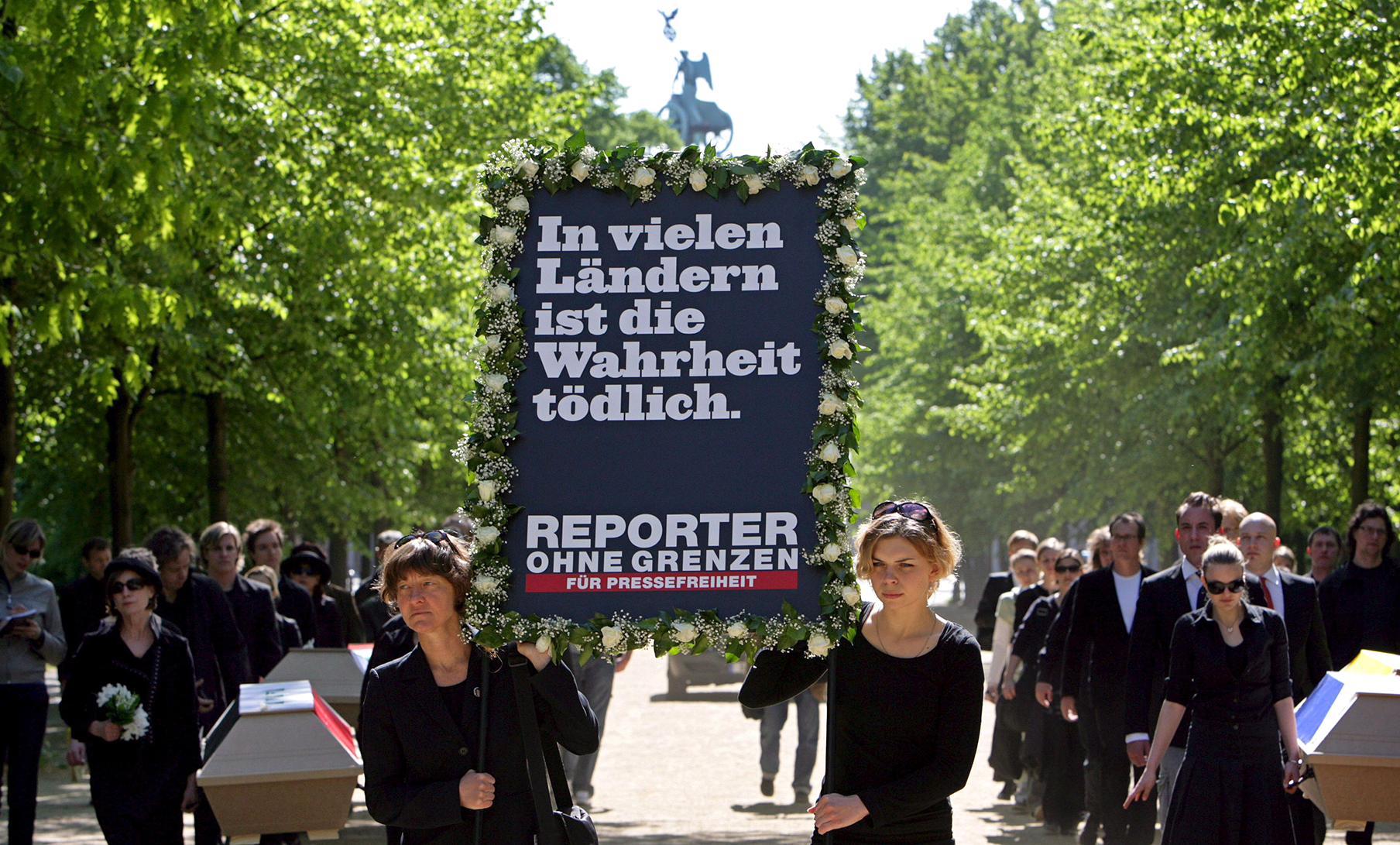
Journalists symbolically carry ten coffins and a banner reading ‘Truth is fatal in many countries’ to the Reichstag building in Berlin, Germany, on 3 May 2007. (Photo: EPA / Arno Burgi)
Civicus noted that over half of the violations documented in the Monitor were violations of freedom of expression.
South Africa, which was downgraded from narrow to obstructed in the Annual Global Index of Civic Freedoms report released in March, maintained its obstructed status.
Read more in Daily Maverick: South Africa downgraded to ‘obstructed’ in annual global civic freedoms index
This is primarily due to threats, intimidation and assassinations of human rights defenders and whistle-blowers.
An incident which affected SA’s rating, which is just one of many in recent years, was the brutal murder of land rights activist Jomo Keromeng. On 15 August 2023, Keromeng was shot 16 times in front of his mother and son in his house in Bakgatla Ba Kgafela, North West.
While service delivery protests over issues like water, electricity, housing, healthcare and education have become a norm in SA, they have also been met with heavy police retaliation.
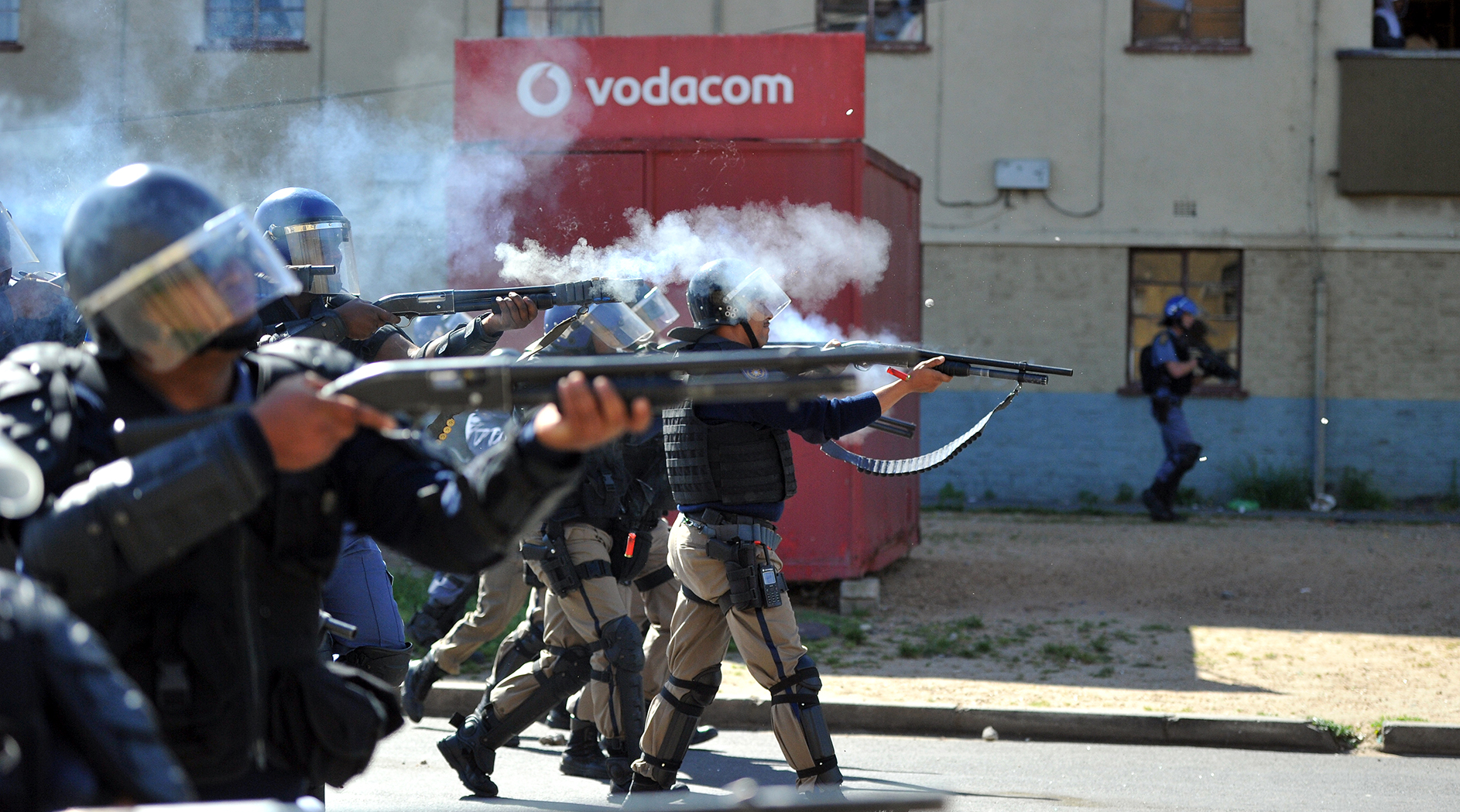
Police shoot rubber bullets at Langa, Cape Town, residents during a service delivery protest on 20 September 2016. (Photo: Gallo Images / Die Burger / Lulama Zenzile)
This includes the July murder of Karabo Chaka, a 16-year-old Slovo Park resident who was struck in the back of his head by a police rubber bullet while he was watching a service delivery protest from the yard of his family home.
The tragic incident happened as the police used tear gas and rubber bullets to disperse a crowd, garnering accusations of excessive use of force from organisations like the Socio-Economic Rights Institute of South Africa.
There were several other protests throughout the year where police used rubber bullets and tear gas on citizens, including an electricity protest march by Majoks township residents in August; a shutdown by protesters from Plakenspark informal settlement in September, and an NSFAS protest by students at the Union Building in August.
Similar issues were recorded in much of the SADC region, including Eswatini.
Senegal is another country of concern as the nation has seen multiple incidents of civic space violations, particularly in the build-up to the presidential elections in February 2024.
According to the report, the West African nation has experienced one of the most significant declines in civic freedom over the past year.
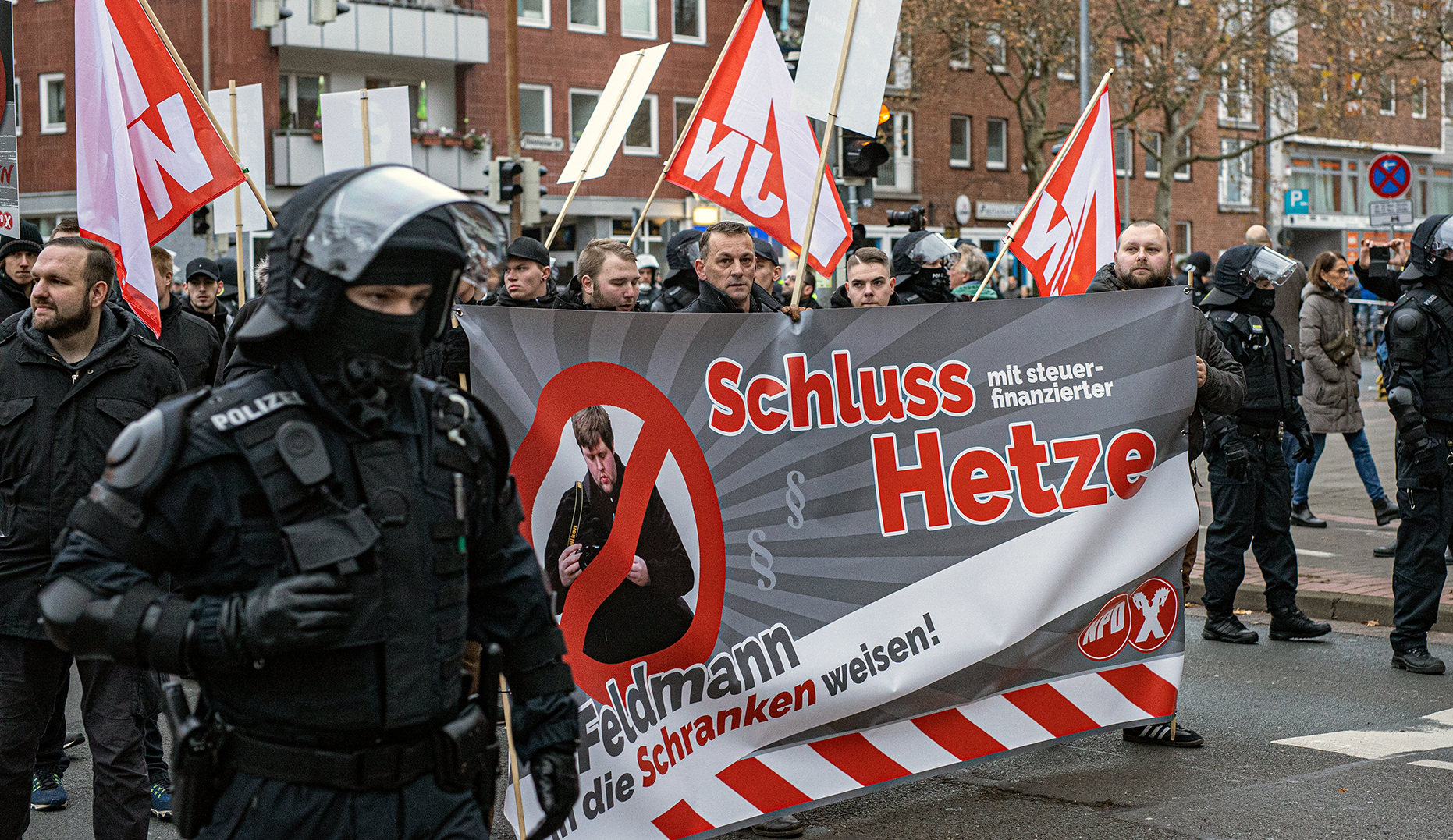
Supporters of far-right National Democratic Party display a banner condemning a journalist during a march against journalists in Hannover, Germany, 23 November 2019. (Photo: EPA-EFE / Jonas Nolden)
The allegedly politically motivated prosecution of opposition leader and presidential hopeful Ousmane Sonke had led his supporters to take to the streets in protest. This was met with excessive and lethal force, the report stated.
The report also found that journalists had been arbitrarily arrested, access to the internet and social media restricted and media outlets in opposition to the government suspended.
During the launch, the West Africa Human Rights Defenders Network executive director, Mélanie Sonhaye Kombate, detailed the situation in Senegal.
“We are facing violence in the context of our civic space, which is violently repressed. We’ve seen a lot of people that have been killed just because they were protesting or members of human rights organisations who were arrested for speaking freely,” Kombate said.
In light of upcoming elections in the regions, Kombate questioned whether it was possible to have free and fair elections if freedom of speech and association were heavily restricted.
Some good news
The report upgraded ratings for five countries, mainly in Africa.
Benin was upgraded from repressed to obstructed because the civic space violations that led to its downgrade in 2021 had yet to reoccur. Lesotho’s new government, under the Revolution for Prosperity party – which promised political stability and an expansion of civic freedoms – saw a move from repressed to obstructed.
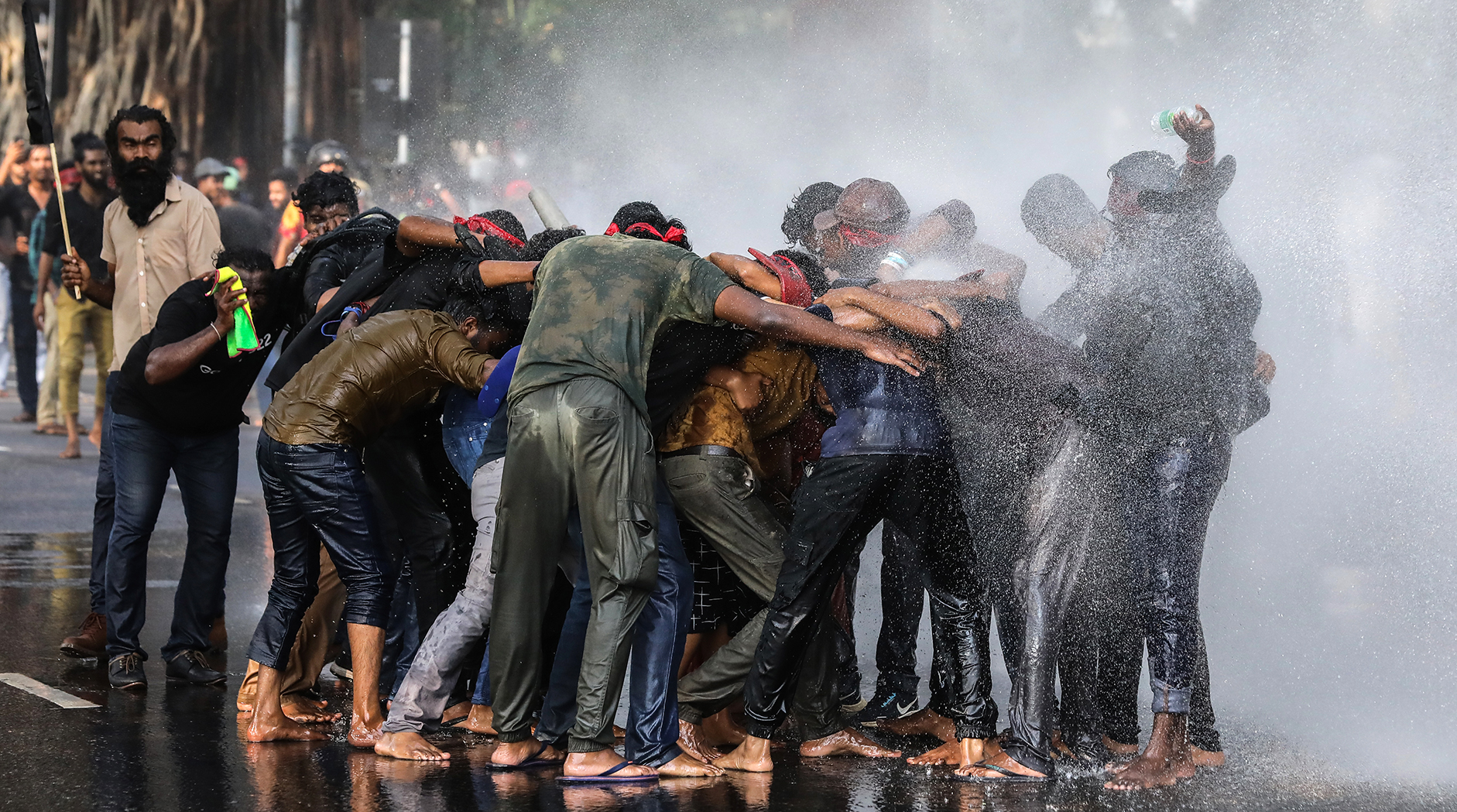
Police fire tear gas and use water cannon to disperse a university students’ protest against the economic and political crisis, in Colombo, Sri Lanka, on 7 March 2023. (Photo: EPA-EFE / Chamila Karunarathne)
Madagascar was upgraded from repressed to obstructed, Libya from closed to repressed, and Timor Leste, a Southeast Asian nation, jumped to narrowed.
Light at the end of the tunnel
While the report finds the state of civic freedoms concerning, it also offers recommendations in the form of actionable policies for governments, the United Nations, the private sector and donors.
The report recommends that governments have a safe environment where civil society activists and journalists can operate freely and without fear, in line with international human rights commitments.
Additionally, governments worldwide are called to work hand in hand with civil society to establish protection mechanisms that respond to the needs of at-risk populations.
Other recommendations include repealing any legislation that criminalises human rights defenders, protesters, journalists and members of excluded groups.
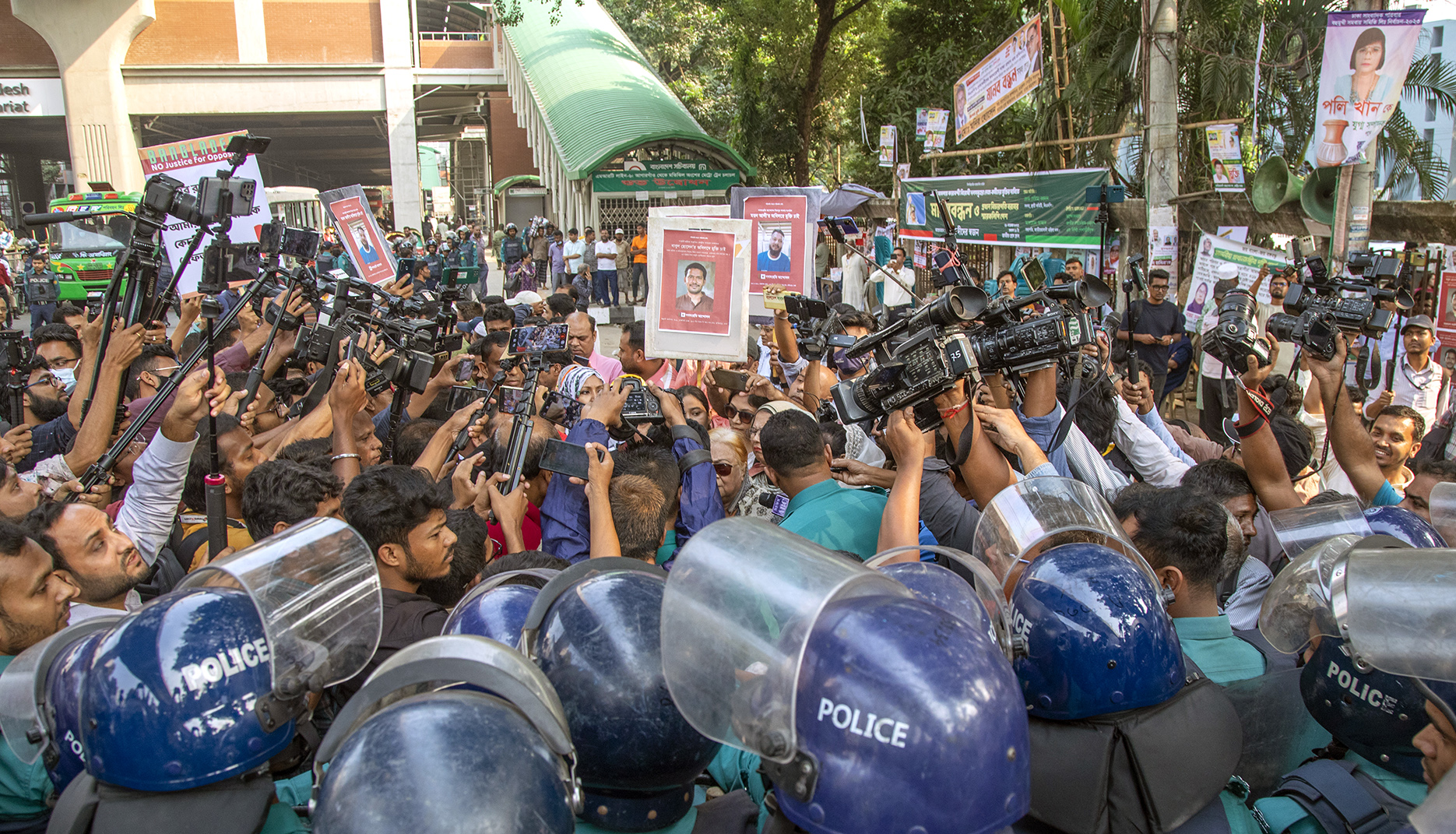
Bangladeshi police members stop the Bangladesh Nationalist Party’s family members as they gather to demand the immediate release of all leaders and activists and to submit a memorandum to the chief justice, in front of the National Press Club in Dhaka, Bangladesh, on 28 November 2023. (Photo: EPA-EFE / Monirul Alam)
It also recommends carrying out independent, prompt and impartial investigations into all cases of attacks on and killings of human rights defenders and journalists.
States are called on to stop using excessive force against peaceful protesters, cease pre-empting and preventing protests, and adopt best practices for the freedom of peaceful assembly.
For the UN, Civicus recommends, among other measures, that the intergovernmental body strengthen the existing mechanisms to address attacks against human rights defenders.
“After [the] 75th anniversary of the Universal Declaration of Human Rights, we need to ensure we leave this world with the dream of those who drafted the declaration, and today, this report is a call for action for all of us [to tackle these global threats against basic freedom],” UN special rapporteur Voule declared. DM
















 Become an Insider
Become an Insider
Comments - Please login in order to comment.